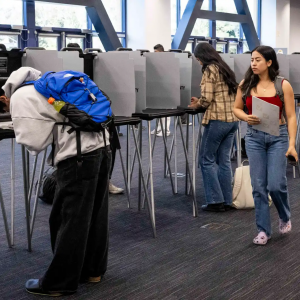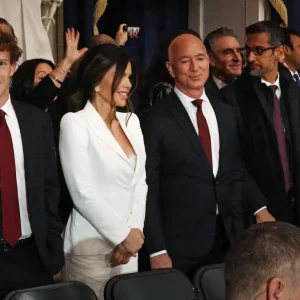
On the evening of Tuesday, February 10, three young Muslim students were fatally shot near the University of North Carolina at Chapel Hill. Newlyweds Deah Barakat, 21, and Yusor Mohammad Abu-Salha, 21, and Yusor’s sister, Razan Mohammad Abu-Slaha, 19, were found dead in their apartment. Craig Stephen Hicks, 46, was arrested as a possible suspect and charged with three counts of first-degree murder.
American media coverage of the tragedy has drawn criticism for its delayed and limited coverage. Leaders of Muslim communities admonished the mainstream media for not reporting the event until it had gained recognition on social media and for failing to recognize the severity of the situation.
News of the shootings initially spread via Twitter, becoming a trending topic until national news networks began covering the tragedy. Abed Ayoub, the legal and policy director of the Arab-American Anti-Discrimination Committee, used the hashtag “#ChapelHillShootings” to spread awareness of the tragedy. Ayoub’s first tweet using the hashtag read, “Please keep the family of the victims in #ChapelHill in your thoughts and prayers. Senseless violence.”
Criticism of the national media’s lack of coverage continued with the Arab American News, a community newspaper in Dearborn. The locla newspaper published an editorial reporting that the shooting was covered by a British newspaper a full five hours before being covered by major American news sources.
Even when the American media began their coverage of the Chapel Hill shootings, their reports were condemned by the Muslim community for downplaying, or outright omitting, the victims’ religious views as a potential motivation for the murder.
Initial reports from CNN depicted the shootings as the result of a parking dispute between Hicks and the victims. The Chapel Hill Police Department released a statement identifying the parking dispute as the motivation for the murders, but promised to “exhaust every lead” to investigate the possibility this was a racially-motivated crime.

The willingness of local law enforcement to consider religious prejudice as a potential motive was not echoed by the community. The possibility of the murders being fueled by Islamophobia was either overtly denied, even by public officials, or in the case of mainstream media, not acknowledged until later.
Karen Hicks, the suspect’s wife, said Hicks “champions the rights of others” and that the killings “had nothing to do with the religion or the victims’ faith.” Following suit, Ripley Rand, United States Attorney for the Middle District of North Carolina, told reporters that he does not believe the murders were part of a “targeted campaign against Muslims in North Carolina.”
However, Dr. Mohammad Abu-Salha, father of Yusor and Razan, called into question this reluctance to label the shootings as a racially-motivated crime by providing evidence to the contrary. Abu-Salha stated that Hicks had harassed his daughters before the fatal encounter. He said of the murders, “It was execution style, a bullet in every head. This was not a dispute over a parking; this was a racially-motivated crime. This man had picked on my daughter and her husband a couple of times before, and he had talked with them with his gun in his belt. And they were uncomfortable with him, but they did not know he would go this far.”
Hicks’ Facebook profile continues to prove that he harbored anti-religious sentiments. Hicks frequently posted about his anti-religious views, sharing posts claiming that religion is the “world’s most successful pyramid scam.” He criticized both Christianity and Islam, claiming that “the religious factions that are growing throughout our land are not using their religious clout with wisdom.”
Despite this evidence, mainstream media was initially reluctant to label the murders as a racially-motivated crime or mention Hicks’ religious views, which many critics felt would have been the first point of contention had the shooter been Muslim and the victims white. Anger over the media’s intentionally limited coverage mounted and the hashtag #MuslimLivesMatter was used to spread awareness of the struggles experienced by the Muslim community.
The media’s failure to first provide coverage of the shootings and then to exclude religious intolerance as a potential motive, even in the face of contradicting evidence, struck a blow to the Muslim community. The Charlie Hebdo shootings resulted in worldwide solidarity for the victims and backlash against Islam, despite the attack being carried out by extremists. In contrast the Chapel Hill shootings received delayed media coverage and religious intolerance or Islamophobia were not seriously considered as motivation for the murders.
By choosing to emphasize Islamic affiliations in the Charlie Hebdo shooting while excluding the religious prejudice in the Chapel Hill shootings, the media portrays Islam in a negative light. This selective coverage fuels Islamophobic tendencies as it reinforces already present discrimination. The failure of the media to seriously address the Chapel Hill shootings in an unbiased manner creates a charged atmosphere for the Muslim community and can only be resolved by the media’s dedication to completely and accurately addressing sensitive issues such as Islamophobia.




